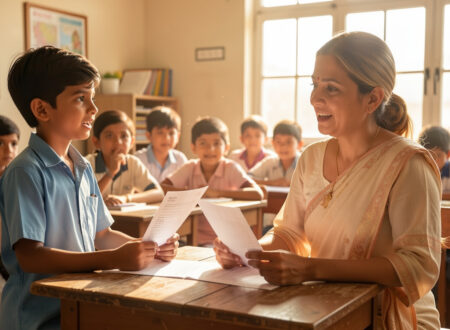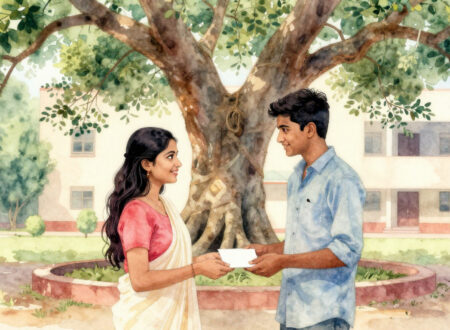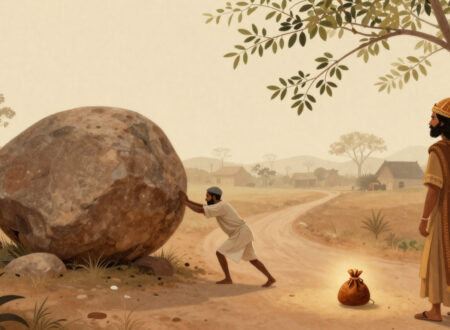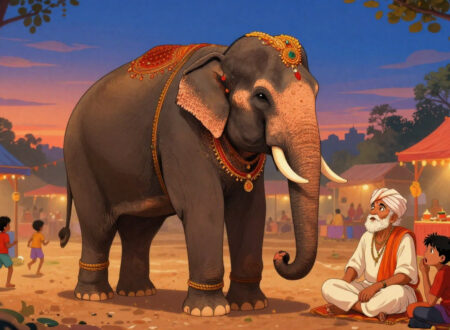There once lived a poor Brahmin woman who survived by begging from house to house. For five days straight, she found no food and went to bed each night with only water and prayers to Lord Vasudeva.
On the sixth day, her fortune changed. She received two handfuls of roasted gram (chana) as alms. By the time she reached her small hut, night had fallen. She decided not to eat them immediately.
“I will first offer these to Lord Vasudeva in the morning,” she thought, and tied the chana in a cloth, keeping it aside. Chanting the Lord’s name, she drifted off to sleep.
But destiny had its own plan.
That very night, a group of thieves entered her hut to steal. They searched everywhere and finally found the small cloth bundle. Assuming it contained gold coins, they grabbed it. The noise woke the old woman, who shouted for help.
Villagers rushed to catch the thieves, who fled in panic. In their haste, they ran toward the ashram of Sage Sandipani, where Lord Krishna and Sudama were students at that time.
When the thieves realized someone was approaching, they dropped the bundle and escaped.
The next morning, Gurumata (the wife of Sage Sandipani) was sweeping the ashram courtyard. She found the small bundle and opened it. Inside were the roasted chana. Smiling, she called out to Krishna and Sudama, who were leaving for the forest to collect firewood.
“Children,” she said, “take this along. When you feel hungry, share these chana between you.”
Sudama, who was spiritually enlightened even as a child, immediately understood the divine mystery behind those humble grains. He realized that the chana were not ordinary food—they carried a curse.
He remembered the poor woman’s cry the night before:
“Whoever eats these chana shall live in poverty!”
Sudama’s heart trembled. He thought, If I share these with Krishna, the Lord of all worlds may become poor. I can’t let that happen.
He bowed his head and made a silent vow. “I will take this curse upon myself. My Lord must never suffer.”
While Krishna walked ahead, Sudama quietly ate all the chana himself—each grain a symbol of love and sacrifice.
Years later, when Sudama lived in poverty while Krishna ruled as a king, this divine act became clear. Sudama had chosen to bear the curse of poverty so that his friend Krishna would never experience worldly hardship.
Such was the depth of his friendship — pure, selfless, and divine.
Moral of the Story:
True friendship is not about sharing happiness, but about protecting your friend from sorrow—even if it means taking the pain yourself.
Vocabulary
| Word | Meaning |
|---|---|
| Alms | Food or money given to the poor as charity |
| Ashram | A spiritual school or hermitage |
| Gurumata | Wife of a spiritual teacher |
| Curse | A negative fate or condition brought by a divine force |
| Devotion | Deep love and faith toward God |
🌍 Glossary
| Term | Explanation |
|---|---|
| Sudama | Childhood friend of Lord Krishna, known for his humility and devotion |
| Lord Krishna | The eighth incarnation of Lord Vishnu in Hinduism |
| Sage Sandipani | Guru of Lord Krishna and Sudama during their student years |
| Chana | Roasted grams, a common simple food in India |
| Vasudeva | Another name for Lord Krishna, symbolizing divine consciousness |







